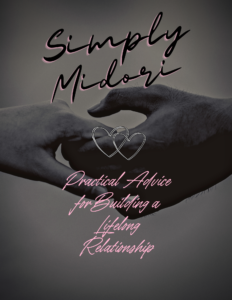Why Fighting Isn’t Always a Bad Thing in a Relationship
It’s a common belief that fighting in a relationship signifies trouble. Perhaps it’s because we’re taught to see love as always happy and harmonious.
But disagreements and arguments are a natural part of any relationship. In fact, they can be a sign that things are going well.
Think about it: if you and your partner never disagreed, wouldn’t that be a little weird? It would mean that one of you is always giving in to the other or you’re not being honest.
So, why do we assume that fighting is always a bad thing?
One reason is that we tend to focus on the negative aspects of fighting: the yelling, the hurt feelings, and the tension.
But what if we looked differently?
Fighting can signify passion: When you care deeply about someone, you will have strong feelings about certain things. It’s natural to get fired up when you’re talking about something you’re passionate about, and sometimes that can lead to disagreements. But isn’t it better to have a partner who’s passionate about things than one who’s indifferent?
Of course, it’s important to remember that not all fights are healthy.
If you’re constantly arguing about the same things without ever resolving them, that’s a problem. But if you and your partner can fight fair and work through your disagreements, you’re on the right track.
Why Fighting is Inevitable in Marriage
Let’s face it – every couple fights. It’s a universal truth that no one can escape. Whether you’re newlyweds or have been together for decades, you will argue about something. It’s just a part of being human. But the way they fight sets successful couples apart from those who end up in divorce court.
It’s easy to think that we’re all great fighters. After all, we’ve been doing it since we were kids. But here’s the thing – we don’t always respond to our partners in the way we think we do.
Researchers have found a big gap between how we perceive our behavior during arguments and how we actually behave.
Don’t believe us?
Check out the eye-opening studies in the book Fighting for Your Marriage. Couples were filmed during arguments and later asked to describe what they did and said to each other. The results were shocking – people were way off in describing their behavior. Below are some of the questions that spouses were asked after a fight:
-
Did you think you were calm and collected when your spouse yelled at you? Think again; less than 2% of people accurately portrayed their actions.
-
Did you think you listened attentively when your partner was pouring their heart? Nope, not even close; spouses showed closed-off body language, and not one spouse could successfully articulate what their spouse actually said.
-
Did you think you were being reasonable and fair during a disagreement? Sorry, but the footage says otherwise, each spouse raised their voice, tone and overall aggression levels to “gain the upper hand.”
In this study, it’s not that we intentionally misrepresent ourselves; but our emotions and biases can cloud our perception of reality. If we want a successful marriage, we must be aware of this gap and work to bridge it. We must own up to our mistakes and actively improve ourselves.
Fighting For Your Marriage: 4 Destructive Patterns That Can Ruin Your Relationship
Relationships are like gardens. They require constant care and attention to thrive. But just like a garden, sometimes weeds can pop up and threaten to choke out the beautiful flowers. In the same way, destructive patterns can creep into your relationship and ruin the love and trust you have worked so hard to build. In this series of blog posts, we will explore four of the most common destructive patterns that can wreak havoc on your marriage.
-
Escalation: Have you ever had a small disagreement with your partner that quickly escalated into a full-blown fight? This is escalation, and it can be incredibly damaging to your relationship.
-
Invalidation: Feeling heard and understood is essential in any relationship. When we invalidate our partner’s feelings or experiences, we tell them their thoughts and emotions don’t matter. This can cause resentment and frustration to build over time. Explore how to validate your partner’s feelings in our second post.
-
Negative Interpretations: We all have an inner voice that can sometimes be overly critical or negative. When we allow this voice to take over during conflict, we can make negative assumptions about our partner’s intentions and motivations. In our final post, we will explore how to recognize and combat negative interpretations before they cause irreparable damage to your relationship.
-
Withdrawal and Avoidance: Have you ever felt like your partner is emotionally distant or shut down during an argument? This is withdrawal and avoidance, and it can be incredibly hurtful. In our third post, we will discuss why some people withdraw during conflict and what you can do to prevent it.
By learning to recognize these destructive patterns and taking steps to prevent them, you can cultivate a relationship built on love, trust, and mutual respect. We hope you will join us for this series of blog posts, and we look forward to helping you build a stronger, healthier marriage. Let us dive in to Destructive Pattern #1 – Escalation.
The Art of Escalation: How to Turn a Simple Argument into a Full-Blown War
Have you ever found yourself amid a heated argument that seems to have a life of its own? One minute you disagree about something small, and the next thing you know, you’re hurling hurtful words at each other that cut to the bone.
That’s the power of escalation, my friend. It’s like a snowball rolling down a hill, getting bigger and more destructive with each passing moment.
-
First, one person says something that rubs the other the wrong way.
-
Then, the other person responds with a slightly sharper comment.
-
Before you know it, both sides are shouting insults back and forth like it’s a competition.
It’s easy to get caught up in the heat of the moment, to let your emotions take over and say things you don’t really mean. But the problem with escalation is that it can cause lasting damage to your relationship.
Do you hear what the other person says when you’re in a shouting match? Or are you just waiting for your turn to speak? You’re not listening to the other person’s perspective when focused on winning the argument.
And that’s where the real danger lies.
When you’re not listening to each other, you’re not solving the problem.
Instead, you’re just making it worse.
Maybe this situation seems familiar to some of your arguments in the past:
MIDORI: Hey, Babe. What do you want to eat?
JOSHUA: (distracted by working) ummm…….I’m not sure….. mumbles something under his breath, not really paying attention.
MIDORI: Well, do you want Mexican or sushi? Can you give me an idea of what you have a taste for?
JOSHUA: … (intently working)
MIDORI: (getting frustrated) Joshua! I am hungry, can you tell me what you want?
JOSHUA: …silence….
MIDORI: (yells) Joshua! Can you stop whatever you are doing and help me!
JOSHUA: (yells back) Babe! This is the one day I have to finish this. Can you please just figure it out?
MIDORI: No. I don’t want to figure it out and then you either don’t like it or change your mind right after I order the food.
JOSHUA: What are you talking about? I literally never do that.
MIDORI: You do that all the time, with everything; every time I make a decision, you try to change it.
JOSHUA: Really, every time, you’re so dramatic.
MIDORI: Whatever you can figure it out, or don’t, I’ll just get food for me.
JOSHUA: Why do you always do this? Just figure it out; it’s not that big of a deal.
MIDORI: Fine, Joshua, go back to work. That’s all you seem to care about; you have time for everybody else except me.
JOSHUA: Seriously, you’re F&$*ing crazy
MIDORI: You are just like your father! He never cared for his wife, either! Or should I say, wives! No wonder why they all left him!
JOSHUA: I would rather be my father than anyone in your dysfunctional family.
MIDORI: IN TEARS… You’re an ass! I’m leaving….
In the above example, something as simple as ordering dinner led to a heated argument that seemed to develop a life of its own. One minute you disagree about something small, and the next thing you know, you’re hurling hurtful words at each other.
The Danger of Escalation in Relationships
When tensions rise, and emotions run high, it’s easy to get caught up in the moment, but what happens when things escalate? According to Fighting for Your Marriage, escalation can be extremely dangerous, and here’s why:
-
As frustration mounts, people go from wanting to be heard by the other to wanting to hurt the other.
-
The hurtful things said will deeply destroy the intimacy and trust the couple needs to survive.
Remember, escalation can be dangerous and destructive. Take steps to prevent it in your relationship, and always prioritize your safety and well-being.
The Silent Killer of Love: How Negative Escalation Can Destroy Your Marriage
When we think of abuse, we often conjure up images of physical violence or loud, heated arguments. But what if the abuse was more insidious? What if it crept up on you, bit by bit until you no longer had a relationship?
That’s the danger of the escalation pattern, a subtle but destructive pattern of behavior that many couples fall into. It might start with a snide remark here, a dismissive eye roll there. Before you know it, you’re locked in a vicious cycle of negativity, where each negative statement follows another.
It’s like a game of verbal tennis, but instead of trying to score points, you’re trying to tear down your partner. And according to the experts, this game could lead straight to divorce court.
Fighting for Your Marriage, a popular relationship book cites research that shows each couple engaging in this destructive pattern eventually got a divorce. It’s like a cancer that eats away at the foundation of your relationship until nothing is left.
So, what can you do to stop damaging escalation in its tracks?
First and foremost, be aware of it.
Pay attention to how you and your partner communicate and make a conscious effort to stay positive you find yourself slipping into negativity, try to break the cycle by introducing something positive into the conversation.
It might not be easy, but saving your marriage from the slow, silent death of negative escalation is worth it.
Preventing Escalation: Tips and Strategies
Escalation will occur in every relationship, but some couples have discovered how to escape the escalating cycle more quickly. Here is an example of avoiding escalation:
MIDORI: (annoyed) You left the cabinets open again!
JOSHUA: (irritated) Why does it matter? It’s been 9 years; it’s not changing. Just close them.
MIDORI: (softening her tone) I like how our kitchen looks when the cabinets are closed. It makes me feel like I can relax and the kitchen is clean. When they are opened it just brings me anxiety.
JOSHUA: (calmer) Oh. I didn’t realize that; I apologize, I don’t intentionally leave them open, but now I will make more effort to close them.
Breaking the Escalation Cycle: The Power of Vulnerability and Love
In this scenario, it took one person to act graciously with the other person. It took Midori to step back and decide to lower her tone and speak with love toward her husband. In this case, it was Midori who recognized the tension and chose to act graciously.
When Midori softens her tone and becomes vulnerable, it takes the attention off the fact that she is “nagging” Joshua and puts the attention on her. Joshua, inevitably loving and caring for his wife, feels sympathetic and apologizes for his aggressive response. Ultimately the two were able to come to a compromise.
-
What can we learn from this story?
-
Vulnerability and love are powerful tools for breaking the escalation cycle.
-
It only takes one person to make a difference.
Studies have shown that when one person chooses to act graciously, it can have a ripple effect on the conversation and lead to a more positive outcome.
So, the next time you find yourself in a disagreement, remember the power of vulnerability and love. Take a step back, lower your tone, and choose to act graciously. Who knows, you might just break the escalation cycle and come to a resolution.
It’s not always easy, but it’s worth it.
Choose love. Choose humility. Choose grace.
Check out Fighting for Your Marriage if you want to read more about escalation or fighting in marriage.
To be continued…











